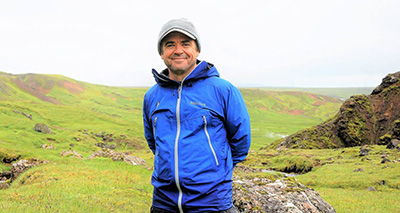Field and Stream
OU ecologist Scott Tiegs recently performed field work in Iceland's geothermal streams to examine the impact of global warming on aquatic ecosystems
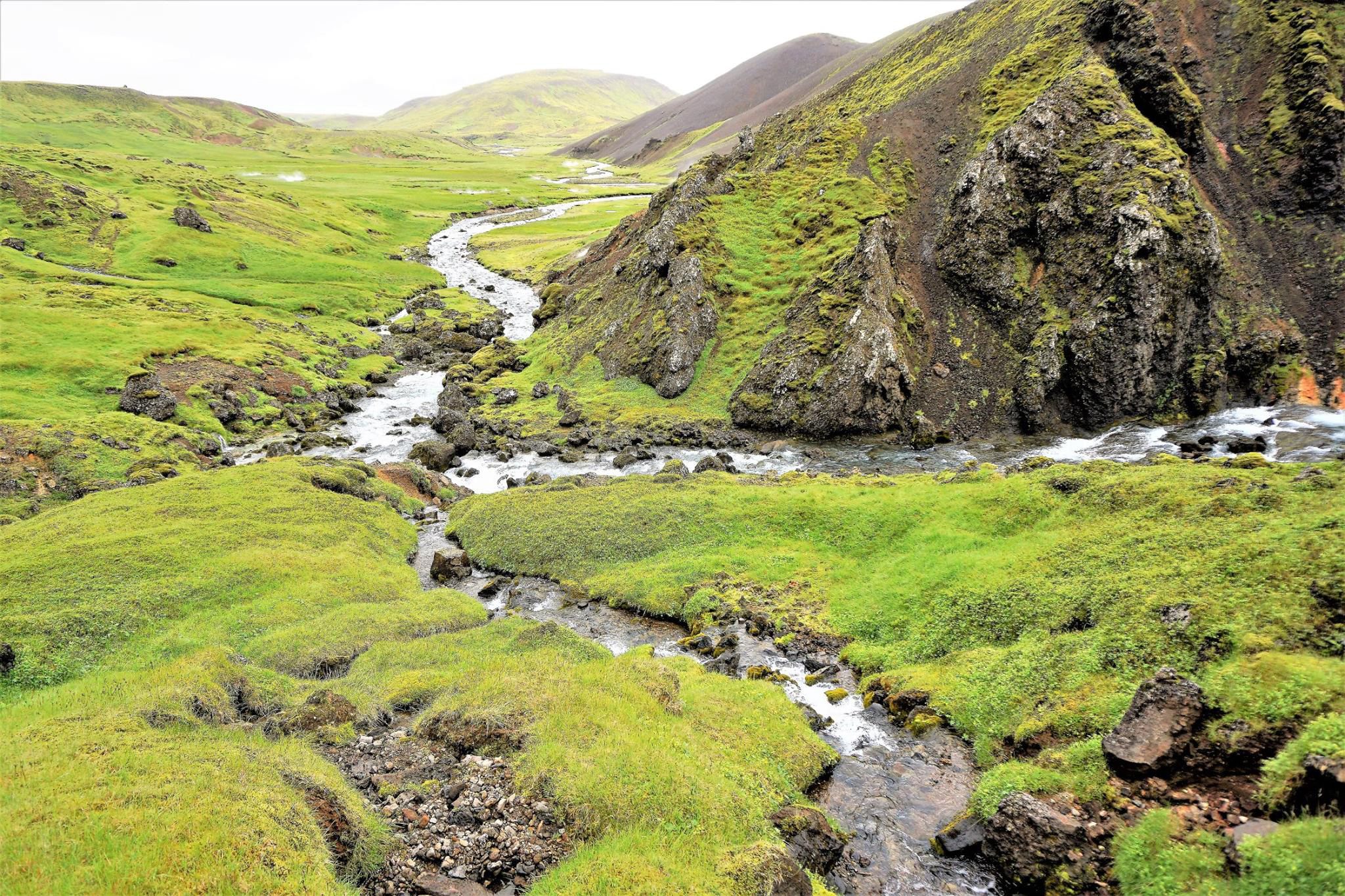
Geothermal field site in Iceland
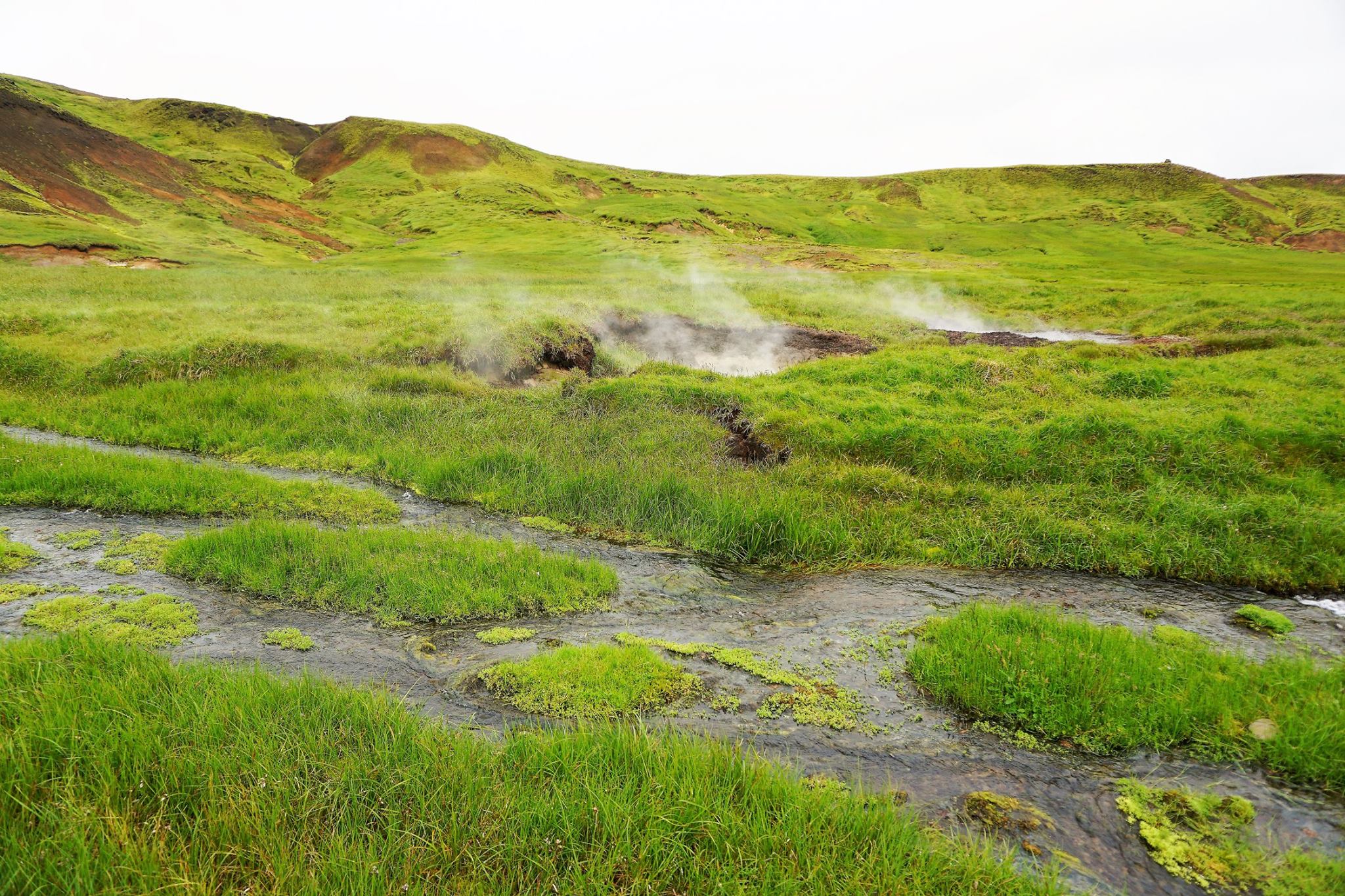
Geothermal field site in Iceland
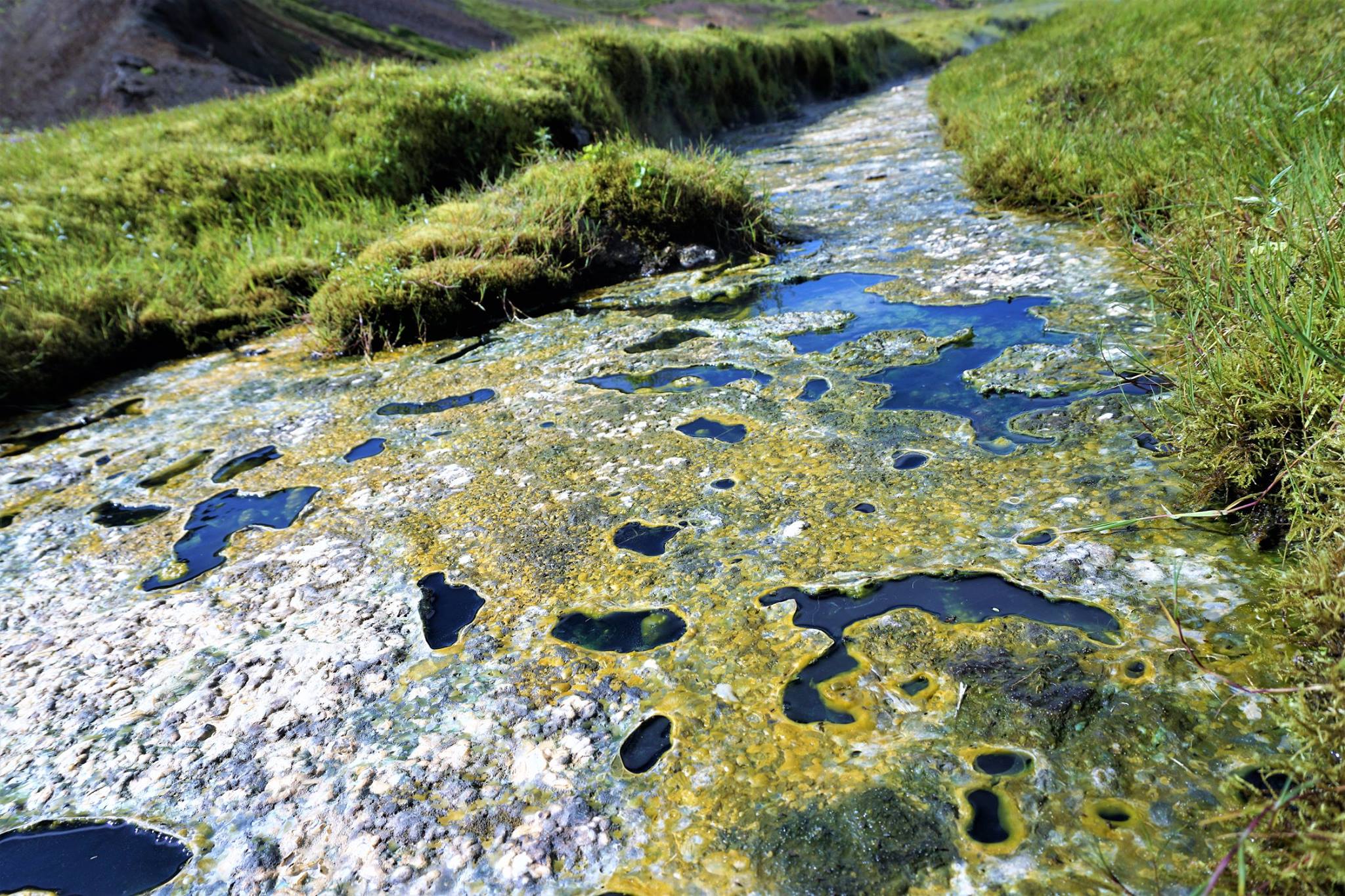
Geothermal field site in Iceland
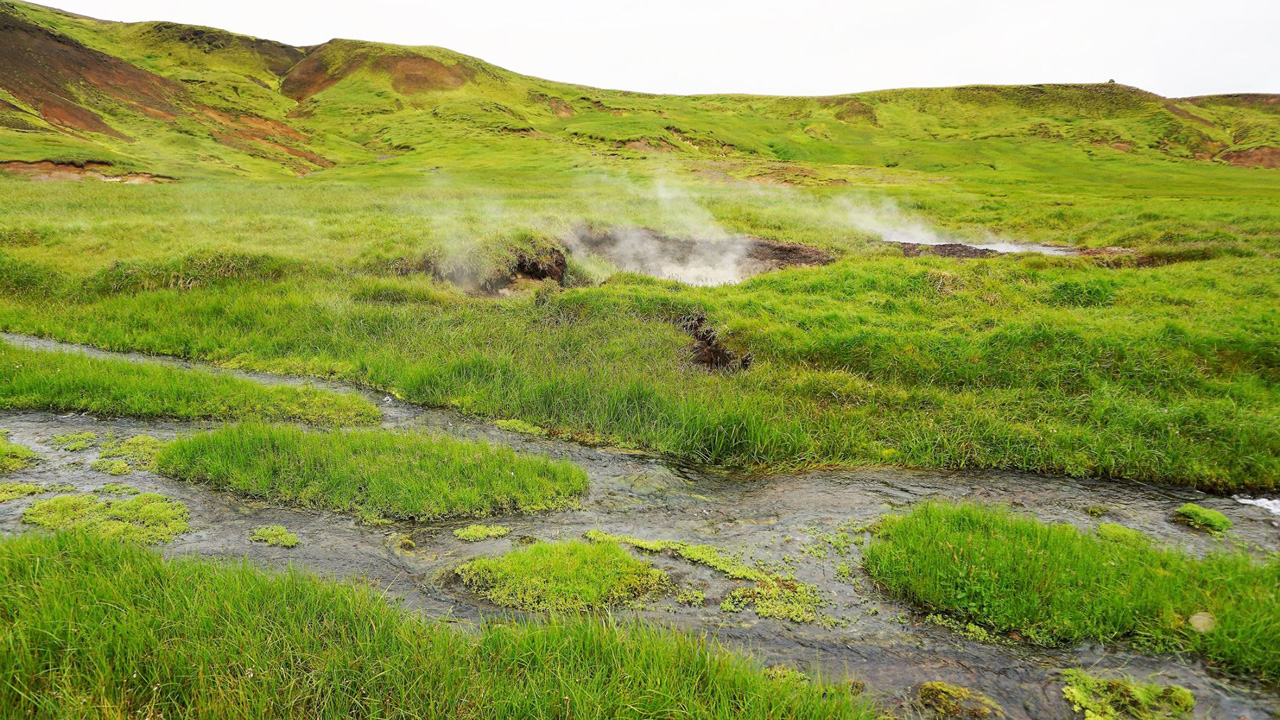
What can geothermal streams in Iceland tell us about the effects of global warming on aquatic ecosystems? OU ecologist Scott Tiegs is part of a research team that traveled to the Nordic island nation to find out.
Scott Tiegs in Iceland's Hengill region |
In collaboration with researchers from Imperial College of London and the University of Essex, Tiegs performed field work in Iceland’s Hengill region, located about 30 miles northeast of the capital city of Reykjavik.
As Tiegs explained, many of the streams and rivers in the region are under geothermal influence, resulting in a broad range of water temperatures. The environmental conditions allow researchers to test ideas about how ecosystems will function in a warming world, especially as it relates to carbon cycling.
The carbon cycle performs life-sustaining functions, including regulating the earth’s climate. But as global temperatures continue to rise, alterations to carbon cycling could fuel global warming even more, researchers warn.
“Aspects of carbon cycling, such as organic matter decomposition rates, are highly sensitive to warming,” said Tiegs, an associate professor in Oakland’s Department of Biological Sciences. “In a warming world, there are concerns that a greater proportion of the organic matter stored in our ecosystems will be converted to CO2, further contributing to climate change. We used the geothermal streams in Iceland to quantify relationships between temperature and rates of carbon cycling."
Tiegs also noted that previous work in the streams found that the communities of microbes and insects differ greatly due to temperature. The team wanted to find out if these changes in community structure affect how the ecosystem functions. Having returned from the field, they will process the samples they collected in order to better understand how aquatic ecosystems will function in the face of rising temperatures around the globe.
“Streams and rivers are arguably the most threatened ecosystems on the planet. We rely on them for vital services such as the provisioning of drinking water, hydropower, recreation and food,” said Tiegs. “The information we gather from Hengill can help prepare for ecological changes that occur as a result of warming, and better conserve aquatic ecosystems worldwide.”


 July 27, 2018
July 27, 2018